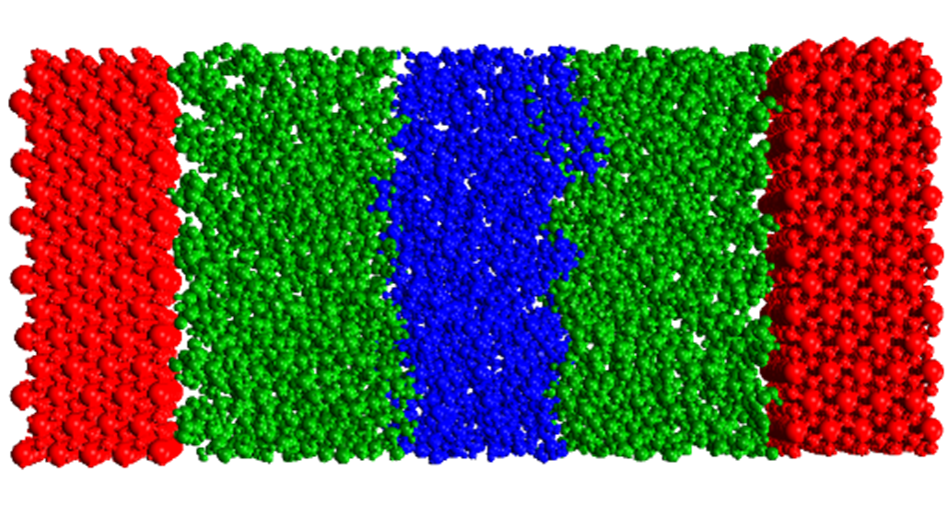Friction and wear account for ~23% of the global energy consumption. The development of high-performance lubricants for a range of vehicle technologies is therefore critical to achieving net-zero emissions from the transportation sector. To rationally design new lubricant and additive molecules, it is required to get an improved understanding of fundamental physicochemical processes (self-assembly, surface adsorption, and mechanochemical decomposition). In this webinar we will outline how these design challenges can be addressed with MAPS and have the honor of hosting Dr. James Ewen from Imperial College. He will give a brief overview of the requirements of lubricants before showing examples of where molecular dynamics simulations can be used to improve the performance of formulations.
The examples presented will demonstrate how to translate engineering problems into molecular simulation strategies applied on a ‘digital twin’ of the systems of interest. In particular:
- Boundary friction of Organic Friction Modifier additives
- Elasto-hydrodynamic friction and flow of lubricant additives
- Mechanochemsitry and tribofilm formation of anti-wear additives

Friction Modifier between Hematite plates
Molecular Simulations of Tribological Systems using MAPS and LAMMPS
Dr. James P. Ewen
Imperial College London
Research Fellow in the Tribology Group, Department of Mechanical Engineering
Royal Academy of Engineering (RAEng)
Abstract: Friction and wear account for ~23% of global energy consumption [1]. The development of high-performance lubricants for a range of vehicle technologies is therefore critical to achieving net-zero emissions from the transportation sector. Lubricants for internal combustion engine (ICE)-powered vehicles are complex, multicomponent fluids containing a blend of base oils and ten or more different types of additive. They have been developed using an evolutionary trial-and-error method over several decades. The next generation of electric vehicles (EVs) will require fluids (E-Fluids) with many of the same performance requirements as traditional lubricants, but with some important differences. In order to make the drastic performance improvements required in ICE-powered vehicles and facilitate new EVs with improved range, novel formulation design approaches are urgently required.
To rationally design new lubricant and additive molecules, we first require an improved understanding of fundamental physicochemical processes (e.g. self-assembly, surface adsorption, and mechanochemical decomposition) in non-aqueous environments. In recent years, molecular simulations have successfully complemented experimental investigations for this purpose [2]. In this seminar, I will give a brief overview of the requirements of lubricants and E-Fluids before showing examples of where molecular dynamics simulations can be used to improve the performance of formulations.
References
- Holmberg, K., Erdemir, A.: Influence of tribology on global energy consumption, costs and emissions. Friction. 5, 263–284 (2017). doi:10.1007/s40544-017-0183-5
- Ewen, J.P., Heyes, D.M., Dini, D.: Advances in nonequilibrium molecular dynamics simulations of lubricants and additives. Friction. 6, 349–386 (2018). doi:10.1007/s40544-018-0207-9
